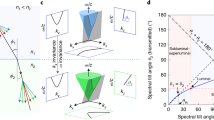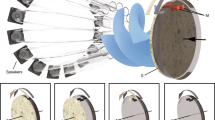Abstract
SINCE atmospheric refraction plays an important part in the bending of ultra–short radio waves round the surface of the earth, an adequate study of the propagation of these waves requires a knowledge of the refractive indexes of gases at very high frequencies. It was thought desirable to test the assumption, made in all previous theoretical work, that the values of these indexes were the same as their values at lower frequencies. When this work was begun, no figures were available for the refractive index of any gas at a frequency higher than about 4 Mc./sec. Since then, however, a result for water vapour at 42 Mc./sec. has been published by Tregigda1.
This is a preview of subscription content, access via your institution
Access options
Subscribe to this journal
Receive 51 print issues and online access
$199.00 per year
only $3.90 per issue
Buy this article
- Purchase on Springer Link
- Instant access to full article PDF
Prices may be subject to local taxes which are calculated during checkout
Similar content being viewed by others
References
Tregigda, Phys. Rev., 57. 294–297 (1940).
Laby and Hopper, NATURE, 143, 240 (1939).
Author information
Authors and Affiliations
Rights and permissions
About this article
Cite this article
KERR, F. Refractive Indexes of Gases at High Radio Frequencies. Nature 148, 751–752 (1941). https://doi.org/10.1038/148751c0
Issue Date:
DOI: https://doi.org/10.1038/148751c0
Comments
By submitting a comment you agree to abide by our Terms and Community Guidelines. If you find something abusive or that does not comply with our terms or guidelines please flag it as inappropriate.



